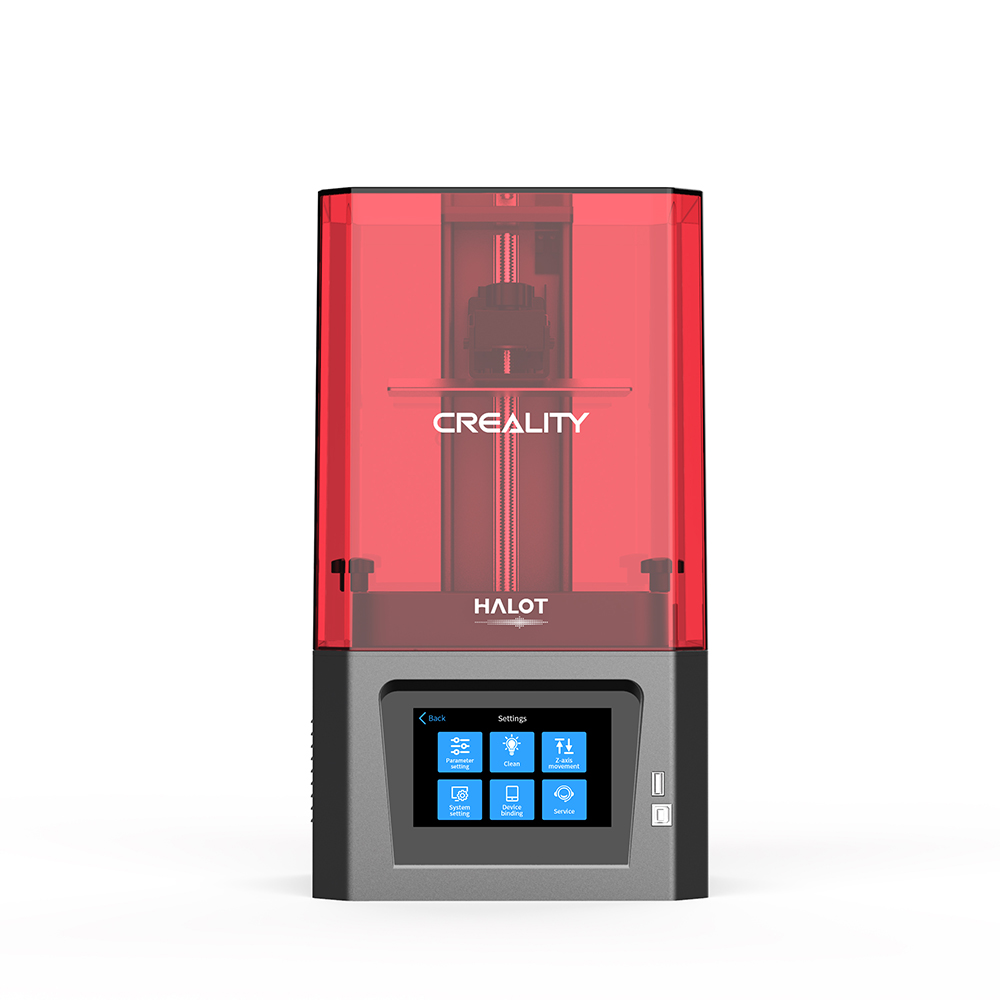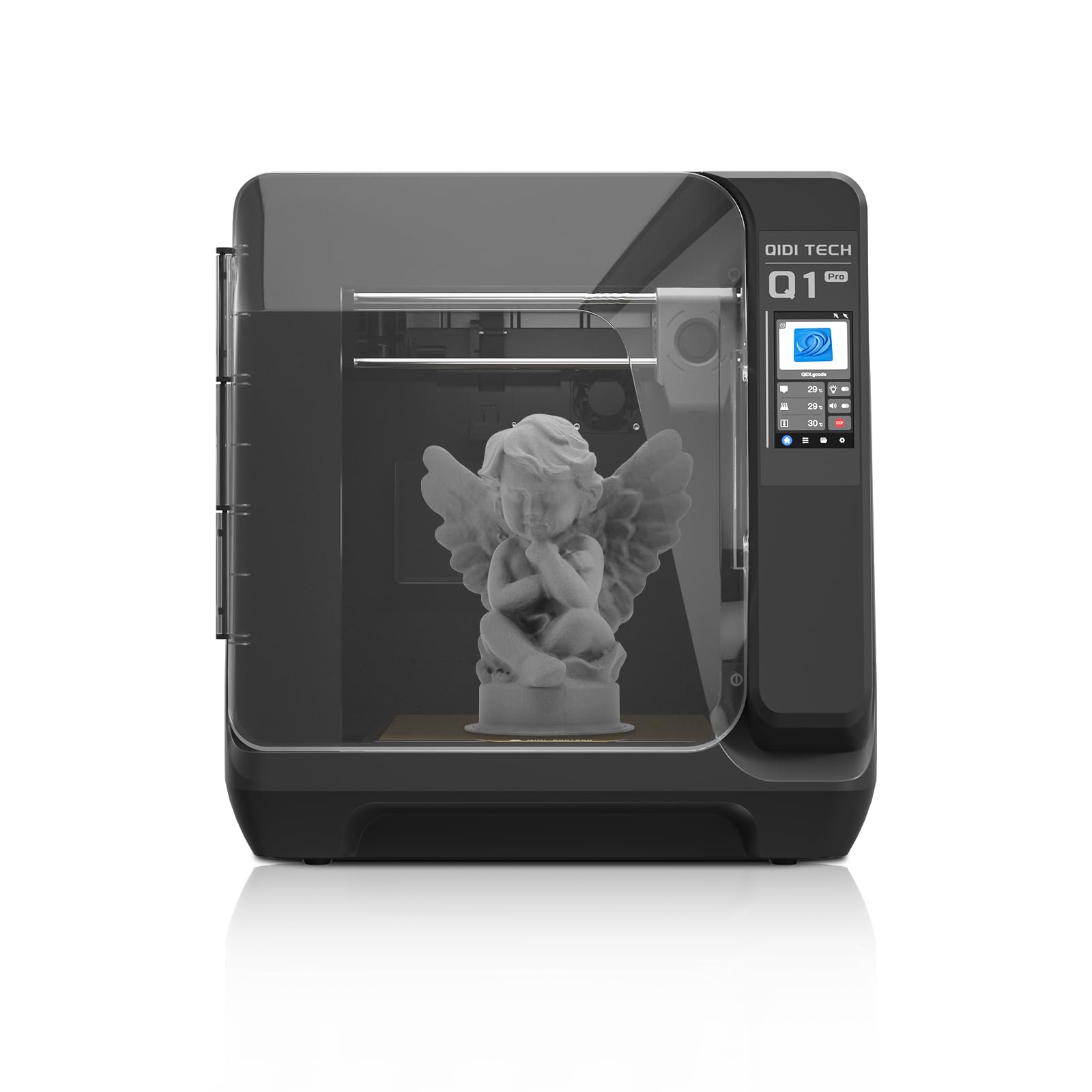Compare Halot One vs Q1 PRO
Comparison between the best 3D printers
Choose the best 3D printer at the best price. The cheapest 3D printers are here.
Buy a 3D printer here with 3D Fila.
 |
 |
|
| Model | Halot One |
Q1 PRO[BUY Q1 PRO] |
| Printing Material | Resin | Filament |
| Buy Resin for Creality 3D Halot One | Buy Filament forQIDI Q1 PRO | |
| Estimated price | $250,00 | $449,00 |
| Manufacturer | Creality 3D | QIDI |
| Release Year | 2021 | 2024 |
| Print Volume [mm] | 127x80x160 | 245x245x245 |
| Printer Size [mm] | 221x221x404 | 467x477x489 |
| Weight [kg] | 7,1 | 20 |
| Power Loss Recovery | NO | YES |
| Maximum Resolution [mm] | 2k | 0,1 |
| Processor | Cortex-A53,64-bit Processor | |
| Display | Touchscreen 4,3'' | |
| Power Supply | 350 W | |
| Connectivity | WiFi/USB Flash Drive/Ethernet Cable | |
| Operating systems | Windows, Mac, Linux | Windows, Linux, Macbook |
| Date of registration in the system | 2022-10-11 | 2024-07-09 |
| Release date | 2021 | 2024 |
| Extra features | Crealitys Halot-One printer stands out with several innovative features. It has a high-resolution touchscreen, providing an intuitive and responsive interface. Its quiet printing capability is remarkable, ideal for environments where noise is a concern. Assembly and setup are simple, with automatic functions facilitating quick start. Among its features, remote monitoring and adjustments via the Creality Cloud app stand out, simplifying remote print management. Replacing the FEP in the resin vat is easy, and the printer even includes extra FEP sheets. Top cover removal detection increases safety by automatically pausing printing. In addition, its integral light source promises high uniformity, optimizing print quality. | The QIDI Q1 Pro 3D printer stands out for its Core XY structure and heating chambers that reach up to 60ºC, ideal for advanced materials such as ABS and Nylon. It features Klipper firmware, an automatic leveling system, a high-flow extruder with a double metal nozzle and a hotend that reaches 350ºC. It offers connectivity via Wi-Fi, USB and Ethernet, as well as a 1080p camera for remote monitoring and an intuitive touchscreen for easy operation. |
| Support for multiple colors and materials (AMS and CFS) | NO | NO |
Notes * |
||
| Cost-benefit | 8 / 10 | 8 / 10 |
| Hardware | 0.6 / 10 | 5.4 / 10 |
| Tela | . | . |
| Print volume | 3 / 10 | 3 / 10 |
| Performance | 9 / 10 | 5 / 10 |
| [BUY Q1 PRO] |
Conclusion |
| In comparing the two 3D printers, the Creality 3D Halot One and the QIDI Q1 Pro, several key distinctions emerge that cater to different user needs and preferences. The Halot One, with its more affordable price point, offers a compact print volume and a lightweight design, making it suitable for home users and beginners looking for a straightforward setup. Its intuitive touchscreen, quiet operation, and features like easy maintenance and safety enhancements contribute to a user-friendly experience. However, it lacks advanced features like power loss recovery and is limited in terms of print volume, making it less ideal for larger projects or professional use. On the other hand, the QIDI Q1 Pro, while priced higher, provides a significantly larger print volume and advanced features designed for more demanding applications. Its Core XY structure and dual-nozzle capabilities allow for high-quality prints using complex materials, making it suitable for professionals and enthusiasts alike. The inclusion of features such as automatic leveling, higher temperature capabilities, and enhanced connectivity options further enhances its appeal. Ultimately, the decision between these two models hinges on the user’s needs. The Halot One is an excellent choice for those seeking an accessible, entry-level printer with solid performance for everyday use. Conversely, the QIDI Q1 Pro stands out for users requiring advanced material handling and larger printability, justifying its higher price with enhanced capabilities and features. |

